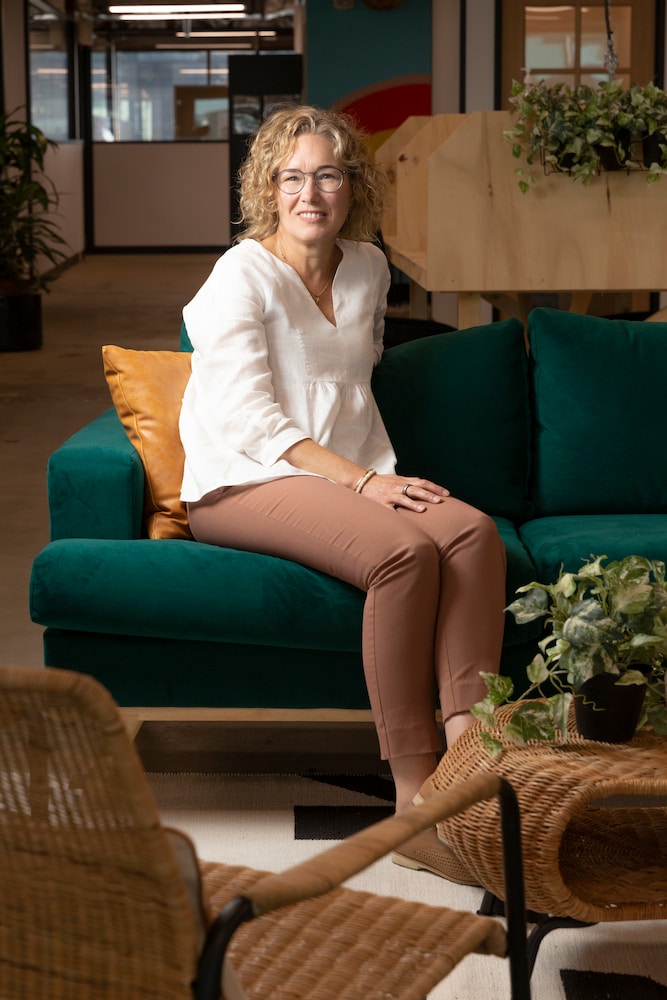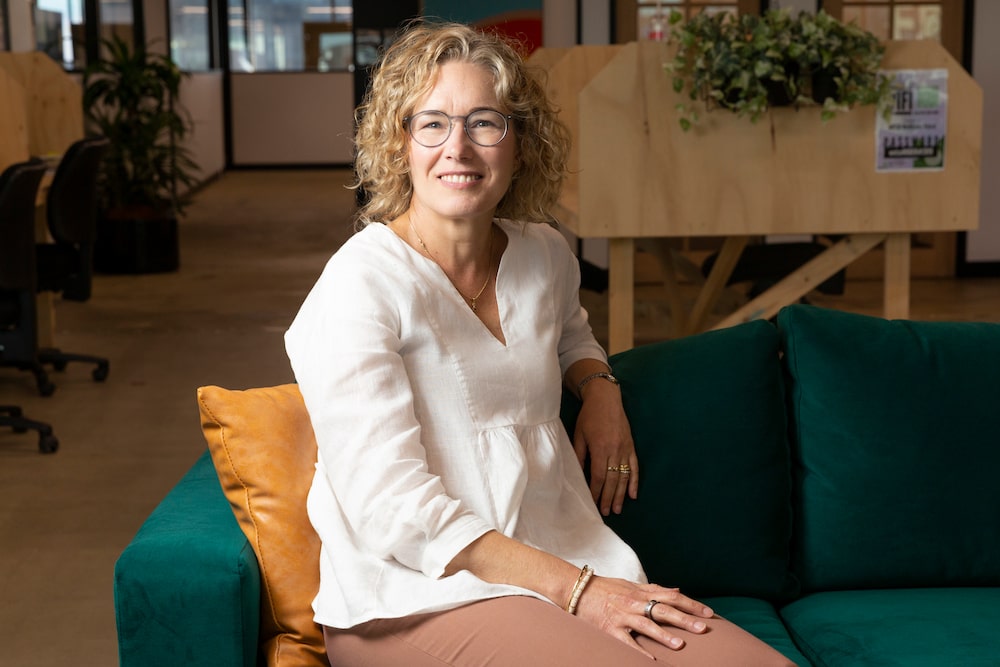Louise Irvine was managing a pharmacy in Canberra, married and raising two kids when she first considered a cochlear implant.
Throughout her childhood, a series of ear, nose and throat (ENT) specialists were unable to diagnose why Louise was hard of hearing, and why it was deteriorating with age.
“With my hearing getting worse as I got older, it was always like ‘I don’t know what my future is going to be’,” she said.
“It was mentioned to me that I would never be able to get a proper job.”
Louise’s mum realised something “wasn’t quite right” with her youngest child’s hearing when she was three, and a bout of measles seemed to make it worse.
“I just naturally learned to lipread, so in most situations I coped really well, unless someone was behind me,” Louise said. “That was when it was really obvious I couldn’t hear.”
Louise progressed through the mainstream education system without learning support or hearing aids, which she preferred not to wear until after adolescence.
It wasn’t until she enrolled in a degree to become a teacher for deaf and hard of hearing students that she met other people with hearing loss.

“That was a real shock to the system.”
Unlike Louise, her peers at university who were totally deaf used sign language and those who were hard of hearing had been since birth, meaning they found it difficult to speak.
She also observed they had strong ties within their community.
“They were sort of in their own little world and they were really happy.
“In some ways, they were more accepting of their hearing loss than I was.”
Considering a cochlear implant
Louise abandoned teaching, studied IT and found work she enjoyed that suited her skills and temperament.
When she and her husband, a pharmacist, moved to Canberra and bought a business, she became store manager.
Louise noticed she was struggling working in a retail environment and knew her hearing aids, which were “way past their lifespan”, needed replacing.
But her audiologist advised that new hearing aids wouldn’t help.
“She said I could spend $12,000 and get new hearing aids and they were not going to offer me any more benefit than the ones I had.
“It had been suggested to me by one of my earlier ENTs that I would probably end up with a cochlear, so I thought it was time to investigate.”
Louise’s audiologist spoke to the Sydney Cochlear Implant Centre, and she suggested Louise attend a meeting of a volunteer group supporting people with cochlear implants to hear about their experiences firsthand.
“There were two people that I remember, one woman was elderly and she was struggling.
“She’d had a cochlear implant for about six months, which in hindsight is not very long, because it does take a while to get used to.
“She kept asking her husband every time someone said something, ‘What did they say?’, and he’d have to repeat it to her.”
The other woman Louise remembers was younger and she had no trouble communicating.
“She was amazing, you would never have even known, and that’s what people were saying about me.
“She’s the only other person I’ve met, still to this day, whose hearing has gotten worse as she got older.”
Comparing the experiences of the two women seated at her table helped Louise make her decision.
“For the first time in my life I thought, ‘Oh, well there is a future for me’.
“I can get along with people and communicate and be independent.”
Louise no longer thinks of hearing loss as a disability
Not wanting to wait until her hearing deteriorated to the point she relied on someone else to help her converse, Louise made the appointment to explore her suitability for a cochlear implant.
She had the operation in February 2010 and a month later it was switched on.
At first, all Louise could hear was loud noise; nerves were being stimulated but her brain needed to learn how to translate that into messages.
“I was determined that it was going to work.
“I had mine on right from the beginning, as soon as I woke up in the morning until I went to bed.”
Eleven years later, Louise has graduated from an accounting degree at the Australian National University, which she studied while working full-time and supporting her children through their final years of high school.
“You know, when I was young, I felt there was something wrong with me.
“Yes, hearing loss is a disability, but I don’t see it that way anymore.”
Nine out of 10 of adults with significant hearing loss in Australia who could benefit from a cochlear implant haven’t explored the technology, according to not-for-profit NextSense, formerly the Royal Institute for Deaf and Blind Children.
Louise encouraged Canberrans experiencing vision or hearing loss to contact NextSense’s ACT branch in Deakin, and to connect with Deaf ACT.
For more health news:



